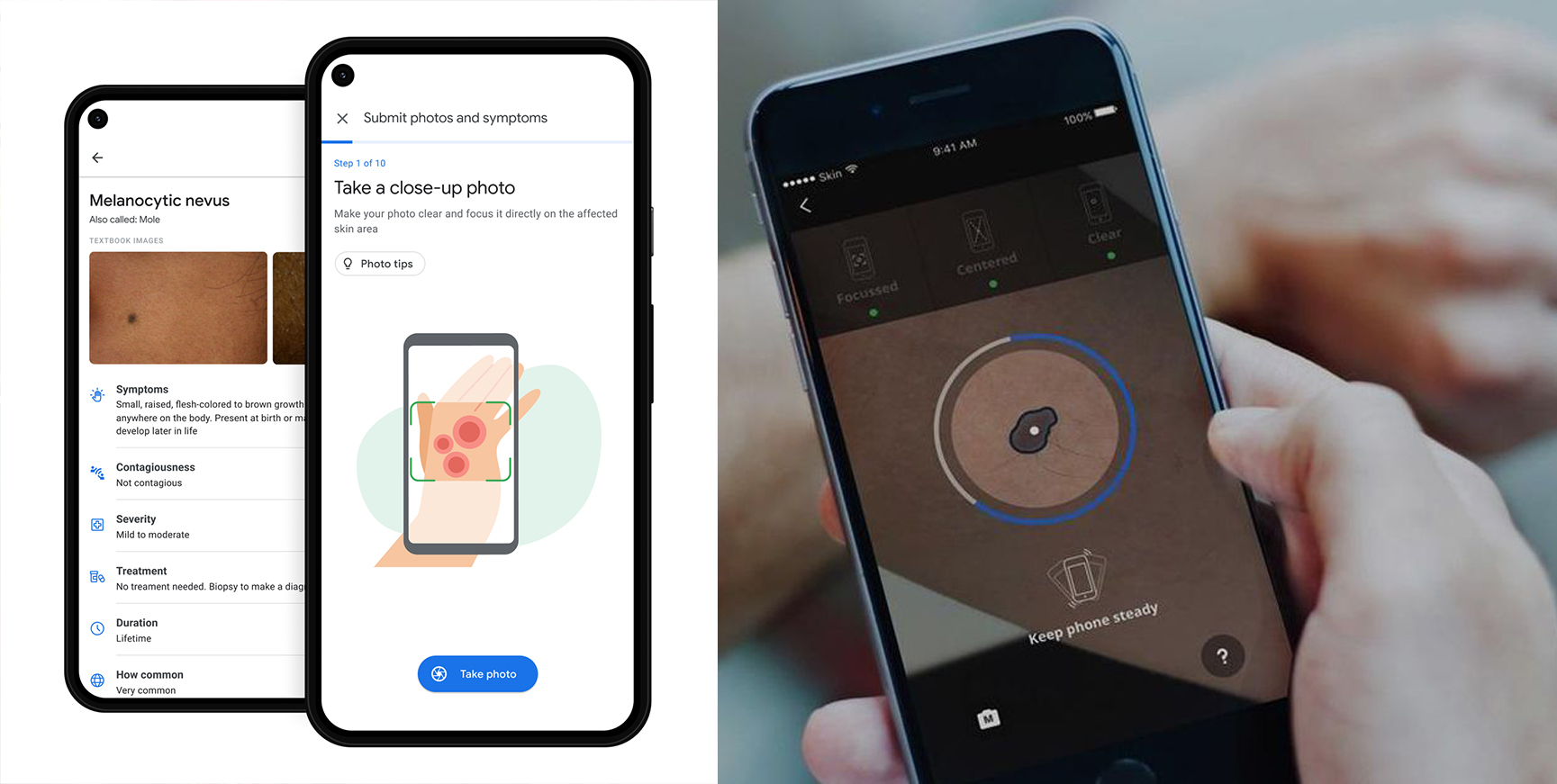CALIFORNIA: Amid the latest technologies in medical imaging, a recently launched Intelligence tool from the search engine Google can identify nearly 288 skin diseases using a mobile phone camera and then recommends the patient for treatment.
The ‘dermatology assist tool’ is an AI-powered dermatology assist tool that cannot substitute a dermatologist however it helps the person understanding diseases related to the skin, hair, and nails.
This is not the first time or the groundbreaking in this line, as many of the similar techniques that detect serious conditions including, diabetic eye disease or lung cancer in CT scans, have introduced not so long ago.
The US-based tech giant, during the launch of a recent AI tool, claimed that nearly ten billion searches related to skin, nail, and hair issues have been made per annum.
To get help about any condition, the person needs to use the camera of the smartphone to take three images from different angles.
The person then needs to fill multiple steps about the skin type and duration of the symptoms in the AI tool that will then narrow down the possibilities of the condition.
The web-based tool then processes the information and draws results from its knowledge of 288 conditions to provide a list of possible matching conditions that the user can then explore further.
The tool will show experts-reviewed information and answers to commonly asked questions, along with similar matching images from the internet.
The ‘dermatology assist tool’, debuted during the annual developer conference of Google IO, should launch later this year.
A statement issued by the tech giant cited that the medical imaging tool took almost three years to develop, while at least 65,000 images of diagnosed conditions have been added to the algorithm.
Reports in international media suggest that Food and Drug Administration (FDA) has not approved the use of ‘Dermatology Assist’, but a related tool from a British firm has been recently approved which diagnoses lung cancer.
As the researchers from search engine Google aimed considerable results for the web-based tool, a number of external clinicians expressed some concern as well. As it is unclear that how different mindsets will interpret the results and whether it will work equally well on a range of patients.
- Misleading Video Alters Prime Minister Shehbaz’s Speech Targeting Political Rival, Not His Party - 21/04/2024
- ATC Grants Three-Day Remand for Suspects in Ichhra Bazaar Harassment Case - 19/03/2024
- Pakistan, India, and Bangladesh Lead World in Severe Smog Crisis, Exceeding WHO Guidelines - 19/03/2024


